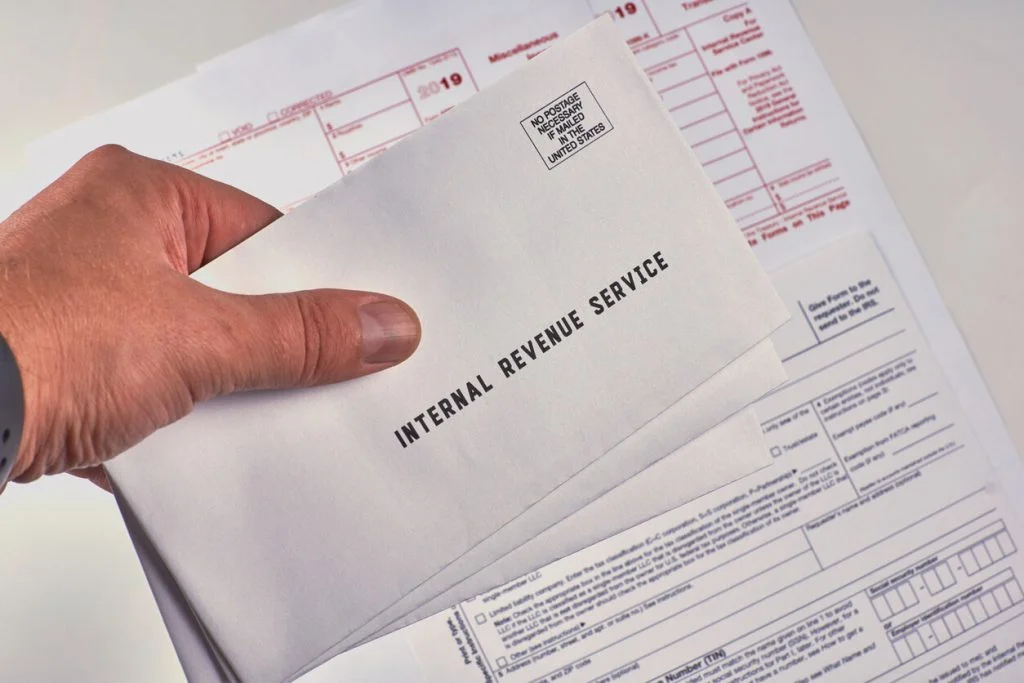When taxpayers are unable to pay their taxes, the IRS will initially send the taxpayer notices in the mail. These notices will provide the taxpayer with specific instructions, explaining both their rights as a taxpayer and the time frame they have to resolve this issue. This can definitely be an anxiety-inducing experience if they threaten to seize your assets. However, it doesn’t have to be that way. If you ever find yourself in this situation, immediately communicate with the IRS, follow the steps below, and be sure to consult with a tax attorney to quickly and efficiently resolve your tax issues.
Tax Liens
If you owe back taxes to the IRS, you will first be notified through a federal tax lien. A tax lien (1) is a legal claim against the assets of a taxpayer who has failed to pay the tax money they owe to the government. It’s essential to respond to the IRS as soon as you are notified. Putting off correspondence to the IRS will likely make your situation worse. If taxpayers do not respond to IRS payment demands, a tax lien will be immediately placed on their assets. However, the lien can be removed if the taxpayer actively communicates with the IRS, and sets up a payment schedule.
Tax Levies
If the IRS is unable to obtain unpaid taxes with a lien, they will then move to levy the taxpayer’s assets. A tax levy (2) is the actual seizure of a taxpayer’s assets by the IRS. This is the IRS’s last resort and the final method utilized to collect unpaid taxes. When a tax levy is put into place, the IRS will provide the taxpayer with written notice of intent to levy their assets. Along with this written notice, the IRS will provide an explanation of the taxpayer’s right to appeal the action within 30 days.
Exempt Assets
Ultimately, the IRS has the authority to seize the majority of every taxpayer’s assets. However, there are a select few items that are off-limits for the IRS to seize. The following is a list of the items that are off-limits to IRS seizure.
- Basic Clothing
- Up to $6,250 of personal items
- Up to $3,125 of educational, textbooks or equipment
- Undelivered mail
- Unemployment benefits
- Social Security and welfare
- Child support
- Worker’s compensation under the Job Training Partnership Act
- Railroad and Congressional Medal of Honor benefits
- Minimum exemption for salary or other wages to pay necessary living expenses
Once the IRS has taken possession of a taxpayer’s assets, they will hold an IRS auction and sell everything to the highest bidder. Assets sold at an IRS auction are required to be sold for at least a fair market value, and appraisals are needed in many IRS tax auction situations. Taxpayers can negotiate with the IRS right up to the auction day. However, this process can be avoided if you actively work with the IRS and efficiently work out a payment plan for paying off your back taxes effectively and efficiently.
Form 9465
In many circumstances, taxpayers can quickly resolve their tax issues through Form 9465 (3). Form 9465 is the IRS’s monthly payment plan. Many Americans utilize Form 9465 when they discover that they owe more income tax than they can afford to pay immediately, or when they have back taxes that they need to pay off. This IRS payment plan is a beneficial program that allows taxpayers to pay off their taxes in monthly installments, rather than in a large lump sum. There are specific stipulations that you must meet in order to be eligible to file Form 9465 and expectations you must be meet after filing. Consulting with a tax attorney is your best bet to discover if you are eligible to file Form 9465.
Actionable Steps
If you are ever in a situation where you end up not being able to pay your taxes in full or if you ever owe back taxes, there are actionable steps you can take to alleviate the situation. Be sure to follow the steps below if you ever do find yourself in such circumstances.
1. Communicate With the IRS
If you ever do receive notification from the IRS that you owe the government money, it is essential that you communicate with them as soon as possible. Ignoring the situation will only lead to more problems for you down the road. For your benefit, it is essential that you work with the IRS to the best of your ability.
2. Consult With a Tax Attorney
If the IRS is ever threatening to seize your assets, it is also in your best interest to consult with a qualified tax attorney. A tax attorney is experienced in these matters and can help you sift through legal jargon. A tax attorney will be able to seamlessly guide you through your tax issues, giving you the best chance to quickly alleviate your tax problems and keep your assets as you work with the IRS.
3. Set up a Payment Plan
After communicating with the IRS and consulting with a tax attorney, it is essential that you set some sort of payment plan to work on paying off the tax money you owe to the government. Your tax attorney will be able to help you file the correct payment plan for your specific situation. Remember to act quickly in these matters, as the IRS can start taking your assets after 30 days of failure to either appeal or to make proper payment arrangements.
Contact the Tax Attorney Experts Today
At Silver Tax Group, we have experienced tax attorneys who are ready to help you quickly and efficiently resolve all of your IRS headaches and tax issues. It is our goal to help every client reach their best possible tax outcome in a quick and efficient manner. You deserve to be represented by a qualified and experienced tax attorney in your IRS tax issues. Contact us today, to speak with one of our qualified tax professionals about your specific tax situation. We look forward to hearing from you and helping you reach your best possible outcome.
Resources:
- https://www.investopedia.com/terms/l/lien.asp
- https://www.investopedia.com/terms/l/levy.asp
- https://www.investopedia.com/articles/tax/09/form-9465.asp





